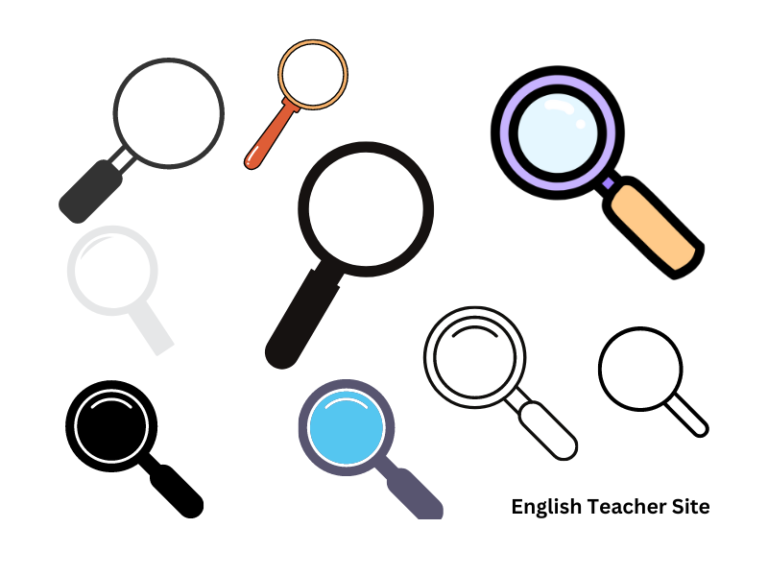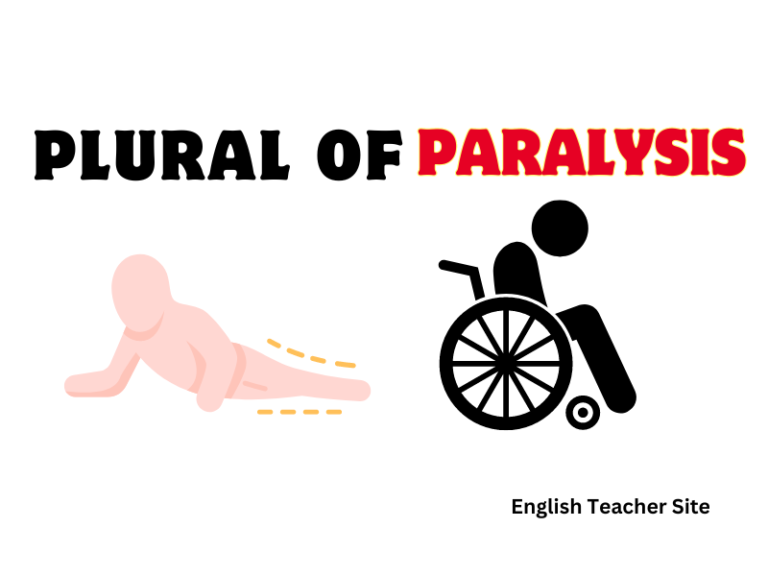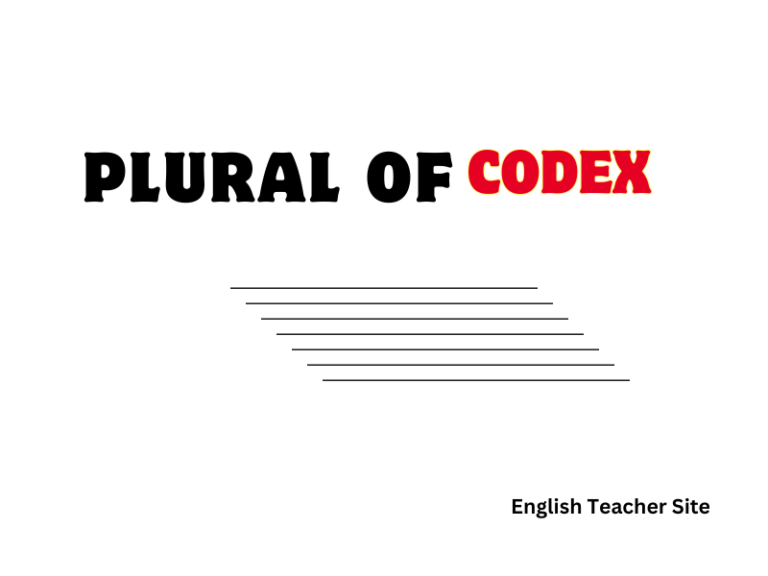What’s the Plural of Syllabus: Understanding Academic Terminology

- Both ‘syllabuses’ and ‘syllabi’ are correct plural forms of ‘syllabus’.
- ‘Syllabus‘ has a Latin origin, which affects its pluralization.
- Understanding the context and preference can guide the use of either ‘syllabuses’ or ‘syllabi’.
The term ‘syllabus’ originally comes from a Latin word, which has influenced the plural form ‘syllabi’. It’s also adapted to the regular English pluralization rule, adding -es to form ‘syllabuses’. These variations in pluralization are common with words that have Latin or Greek roots, where the traditional English plural form coexists with a form that adheres to the word’s original language.
Is Syllabus Plural or Singular?
The word ‘syllabus’ refers to a singular noun. It is defined as an outline or a summary of topics to be covered in an educational course.
The plural form of ‘syllabus’ can be either ‘syllabi’ or ‘syllabuses.’ Both terms are correct and widely accepted in English; however, their usage may vary depending on the context or preference.
Plural Forms of ‘Syllabus’:
| Form | Usage |
|---|---|
| Syllabuses | Often seen in informal contexts and considered more ‘regular’ in modern English. |
| Syllabi | More formal, traditionally preferred in academic settings, and reflects Latin origins. |
- Syllabuses may include a detailed calendar of lectures and readings.
- Academic institutions might require instructors to submit syllabi for approval before classes begin.
Emphasis on Usage:
- Syllabuses are pragmatic and align with other English pluralization patterns.
- Syllabi retains an air of classical education and is easily recognized among scholars.
Definition of Syllabus
A syllabus is an academic document that outlines the elements of a specific course. It typically serves as a guide for both instructors and students, delineating the course structure, requirements, objectives, and materials. The syllabus is usually provided at the beginning of a course, offering a detailed schedule of topics to be covered, assignments, readings, exams, and other pertinent course logistics.
Here is a breakdown of a syllabus’ core components:
| Component | Description |
|---|---|
| Course Information | Course title, number, and description; semester; and year. |
| Instructor Information | Name, contact information, office hours, and location. |
| Course Requirements | Textbooks, materials, and prerequisites. |
| Grading Policy | Explanation of grading criteria and scale. |
| Course Schedule | Calendar of topics, readings, assignments, and exams. |
The syllabus not only informs students of their academic commitments and expectations; it also offers a framework within which the course will operate.
In addition to the traditional elements, a syllabus may include:
- Learning Outcomes
- Expectations for class participation
- Policies on technology use
- Accommodations for disabilities
What’s the Plural of Syllabus?
The plural form of “syllabus” can take two accepted forms: “syllabi” and “syllabuses.”
Syllabi stems from the traditional Latin method of pluralization:
| Singular | Plural |
|---|---|
| Syllabus | Syllabi |
However, “syllabuses” is also correct and conforms to the standard English practice of adding “-es” to nouns ending in “-us”:
| Singular | Plural |
|---|---|
| Syllabus | Syllabuses |
Here are the critical distinctions between the two options:
Syllabi:
- Rooted in Latin.
- Often used in academia.
- Sounds more formal.
Syllabuses:
- Aligned with English pluralization rules.
- More commonly used in everyday English.
- Less formal.
Nouns Ending in -us/-i
Examples of -us Nouns and Their -i Plurals:
| Singular (-us) | Plural (-i) |
|---|---|
| alumnus | alumni |
| cactus | cacti |
| focus | foci |
| fungus | fungi |
| stimulus | stimuli |
Words with Both -i and -es Plurals:
| Singular (-us) | Plural (-i) | Plural (-uses) |
|---|---|---|
| syllabus | syllabi | syllabuses |
| octopus | octopi | octopuses |
| nucleus | nuclei | nucleuses |
| corpus | corpora | corpuses |
- Irregularities: Not all words ending in -us will follow the -i pluralization rule; for instance, “bus” becomes “buses,” not “bi”.
- Etymology Matters: The origin of the word influences its plural form; words with Greek roots may differ, such as “syllabus” (a word with Greek origins misspelled in Latin), which sometimes brings “syllabontes” into discussions.
- Preference and Context: Variations in plural forms can be attributed to formal versus informal contexts, with traditional forms often appearing in academic settings.
Syllabus Used in Context (in Sentences)
Singular Form
| Subject | Sentence |
|---|---|
| Math Class | She reviewed the syllabus on the first day. |
| History | The syllabus outlined all the key historical events to study. |
The singular “syllabus” is used when referring to a single course or subject matter.
Plural Form
In plural form, “syllabi” or “syllabuses” can be used interchangeably, albeit “syllabi” being more prevalent in academic settings.
| Context | Sentence Using ‘Syllabi’ | Sentence Using ‘Syllabuses’ |
|---|---|---|
| University | The professor distributed the syllabi for her literature classes. | Each of the courses had distinct syllabuses that she compared. |
| Conference | Attendees received syllabi detailing the various sessions. | The event organizers compiled syllabuses for different tracks. |
The plural form is appropriate when referring to more than one course or document.
- A syllabus can contain goals, topics, and assessments.
- “Syllabi” implies multiple outlines from perhaps various classes or subjects.
- The context of education often governs the choice between “syllabuses” and “syllabi.”
- It is crucial to match the syllabus accurately with its subject to avoid confusion.
Syllabuses/Syllabi Used in Context (in Sentences)
Usage of “Syllabuses”:
- The new curriculum changes are reflected in the updated syllabuses.
- Instructors tailored their syllabuses to include more interactive assignments.
- Each department’s standardized syllabuses ensure a cohesive educational experience.
Usage of “Syllabi”:
- Students are advised to read their course syllabi carefully at the start of the semester.
- Comparative literature syllabi often include diverse global texts.
- The committee reviewed the teaching syllabi for approval before the academic year commenced.
| Term Used | Example Sentence |
|---|---|
| Syllabuses | “The board suggested revisions to the science syllabuses for the next term.” |
| Syllabi | “Teachers must submit their course syllabi by week’s end for review.” |
Synonyms of Syllabus
Below are common synonyms for “syllabus”:
| Term | Context of Use |
|---|---|
| Outline | Often indicates a more general overview of content. |
| Curriculum | Implies a broader scope, including all courses within a program. |
| Course Guide | Provides specific details about a single course. |
Each of these synonyms ^may^ carry slight variations in meaning or usage, depending on the educational context. For instance, a curriculum may encompass multiple syllabi if it refers to a complete program of study, whereas a course guide is typically specific to one class.
Additional synonyms include:
- Program of study: Typically used to describe the comprehensive set of courses and experiences designed for a specific degree or certification.
- Schedule of topics: Refers to the chronological order in which topics will be covered during a course.
- Abstract
- Course outline
- Study guide
- Lesson plan
Origin of the Word Syllabus
The term syllabus has an interesting history, rooted in a blend of Latin and Greek linguistic elements. Initially, the word appeared in the 1650s, functioning as an abstract or list-like summary.
Etymology and Misinterpretation
| Language | Interpretation |
|---|---|
| New Latin | List, mistaken transcription of sittybas |
| Greek | Sittybās, labels on papyrus rolls |
A common belief is that the term syllabus might be a misreading or transcription error from manuscripts of Cicero, a Roman orator. Scholars postulate that what was originally sittybas—a plural Greek term for labels attached to scroll cases—was misread as syllabus in Latin texts.
In its journey to English, syllabus underwent further transformation. It embraced the function of outlining course details in the realm of education. This adaptation has influenced its contemporary usage, particularly in academic contexts, highlighting a summary of topics covered in a course or module.
Late Latin to English
| Century | Development |
|---|---|
| 1650s | Adopted into English as a summary outline |
Sources
My name is Khamis Maiouf. I am the creator of the English Teacher Site, dedicated to providing valuable resources and insights for students around the world. With a passion for education and a commitment to helping students enhance their skills, I aim to make English teaching more effective and enjoyable for both educators and students.






